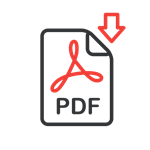
Orchestrating AI Agents:
Unlocking the Future of Organizational Readiness

Artificial Intelligence is no longer just a standalone tool it has evolved into complex systems where multiple AI agents collaborate to achieve greater outcomes. This shift toward orchestrated AI agents opens exciting opportunities for organizations ready to embrace the future. Let’s dive into how AI orchestration can transform your organization, the components involved, industry use cases, and practical steps to build a successful AI strategy.
The Journey of AI: From Simple Tools to Collaborative Agents
AI’s evolution has been remarkable:
- Basic Tools: Early AI solutions were single-purpose tools dependent on human input.
- Assistants: These added multi-functional capabilities with learning, but still required oversight.
- Autonomous Agents: AI systems that independently make decisions and take actions.
- Orchestrated Systems: Groups of specialized AI agents working in harmony to tackle complex challenges.
Orchestrated AI systems deliver far more than individual agents by coordinating efforts, optimizing workflows, and sharing insights.
What Does AI Orchestration Involve?
AI orchestration is an ecosystem consisting of:
- Orchestrator: The central system managing and coordinating the activities of AI agents.
- Specialized Agents: Individual AI components each built with specific expertise or functions.
- Shared Knowledge Base: A common data repository accessible to all agents for informed decision-making.
- Communication Protocols: Standardized means for agents to exchange information seamlessly.
This architecture enables AI agents to work together efficiently while aligning with broader organizational objectives.
Key Ingredients for Successful AI Agent Orchestration
To implement orchestration effectively, organizations should focus on:
- Clear Objectives: Define precise goals to guide AI activities and measure success.
- Governance Framework: Establish rules and ethical boundaries for AI usage to ensure accountability.
- Coordination Mechanisms: Facilitate smooth collaboration between different AI agents.
- Monitoring Tools: Continuously track performance and adjust operations as needed.
- Adaptive Learning: Foster ongoing improvement based on real-world outcomes and insights.
Practical Applications Across Industries
AI orchestration is already delivering impact across sectors:
- Healthcare: Supporting diagnoses, optimizing treatments, and automating workflows.
- Finance: Detecting fraud, managing portfolios, and automating compliance.
- Manufacturing: Enhancing supply chain efficiency, predictive maintenance, and quality assurance.
- Customer Service: Coordinating support channels, personalizing experiences, and analyzing sentiment.
These examples demonstrate how coordinated AI agents can amplify value across diverse organization functions.
Overcoming Challenges on the Path to AI Orchestration
While promising, AI orchestration introduces challenges that must be managed carefully:
Technical Challenges
- Ensuring systems interoperability
- Addressing data privacy and security concerns
- Scaling AI solutions effectively
Organizational Challenges
- Managing workforce transitions and skill development
- Integrating with legacy systems
- Defining governance and securing budgets
Ethical Considerations
- Maintaining transparent decision-making
- Mitigating algorithmic bias
- Preserving human oversight and accountability
Crafting Your AI Orchestration Strategy
Developing an effective AI orchestration approach involves these stages:
- Assessment: Understand your organization's current AI capabilities and gaps.
- Pilot Projects: Launch targeted, small-scale AI initiatives to prove value.
- Capability Building: Enhance technical infrastructure and cultivate AI talent.
- Scaled Deployment: Expand successful pilots systematically across functions.
- Continuous Evolution: Regularly evaluate and refine your AI systems and strategies.
Measuring the Impact of AI Orchestration
Key metrics to track success include:
- 27% average reduction in operational costs
- 42% improvement in decision-making accuracy
- 3.8x increase in innovation output
- 18 months typical ROI payback period
Tracking these KPIs ensures your AI investments are aligned with tangible organization benefits.
Preparing for the Future with AI Orchestration
To stay competitive, organizations should:
- Define a Clear AI Vision: Articulate how AI aligns with your organization goals.
- Set Strategic Priorities: Identify where orchestrated AI agents can deliver the most impact.
- Invest in People and Technology: Build skills and infrastructure to support growth.
- Implement Incrementally: Start small, learn fast, and scale pragmatically.
- Establish Governance: Ensure ethical use of AI through robust frameworks and oversight.
AI agent orchestration is reshaping how organizations approach digital transformation. Those who harness its power today will unlock new levels of agility, innovation, and efficiency tomorrow. Embrace the era of orchestrated AI agents and position your organization for lasting success.
Read More
Contact Us

